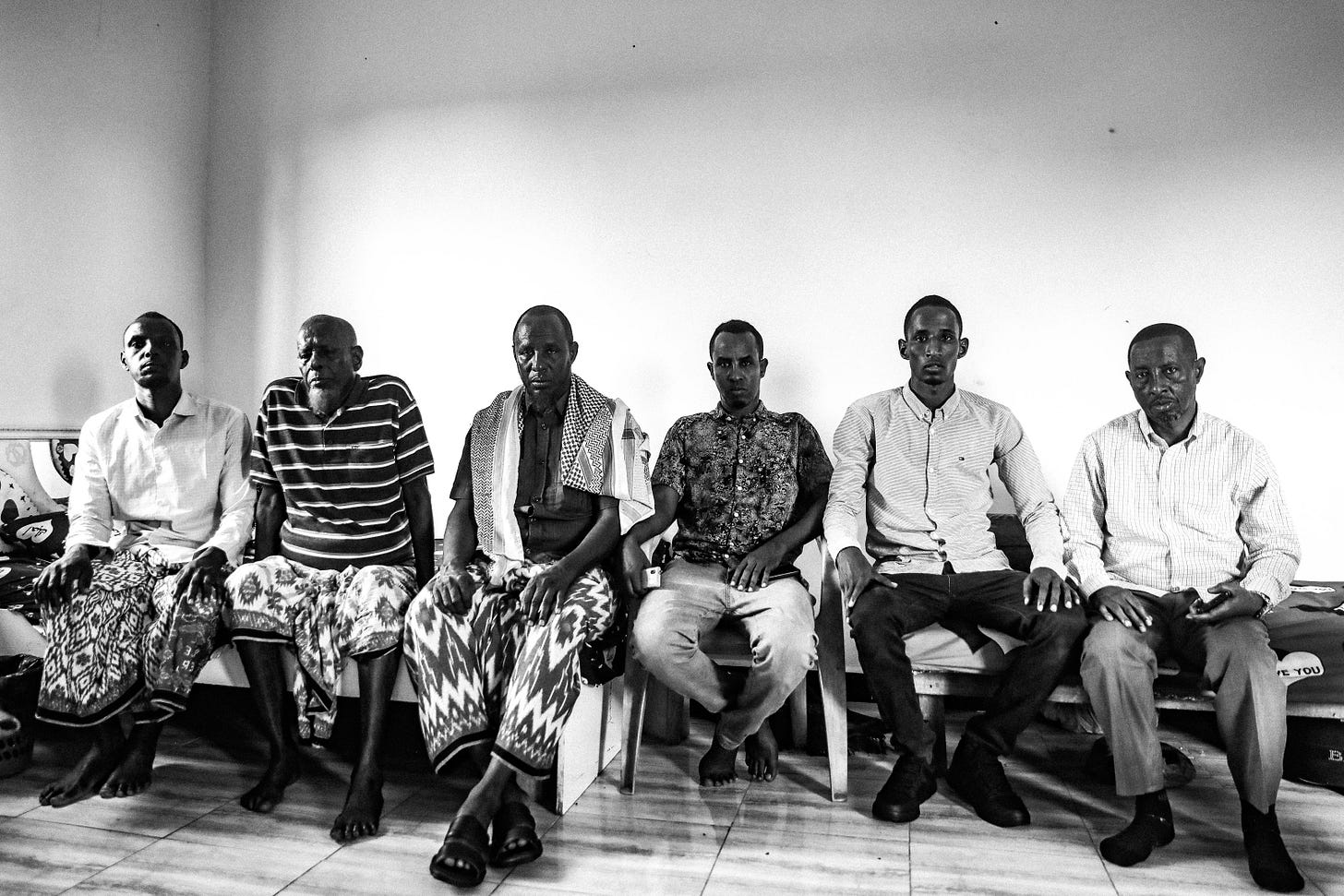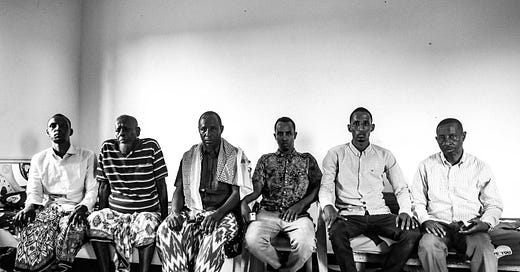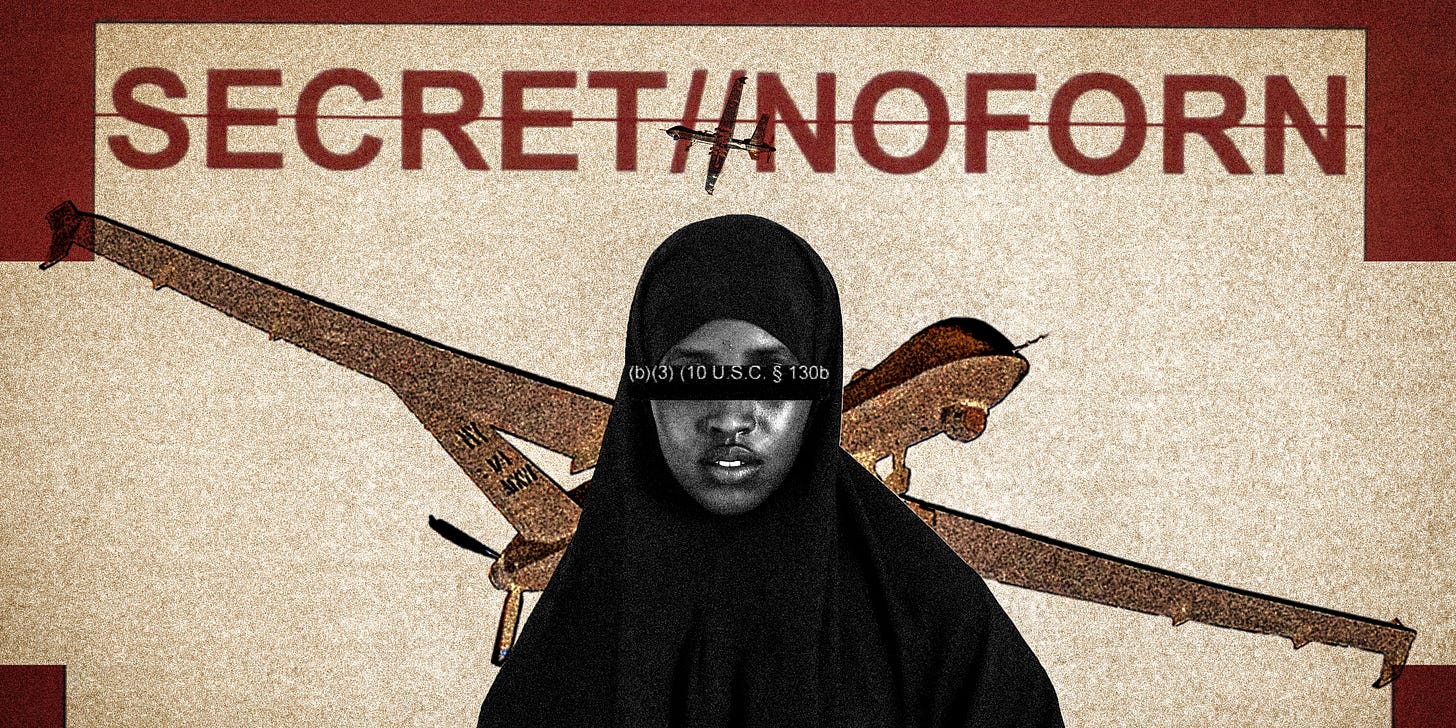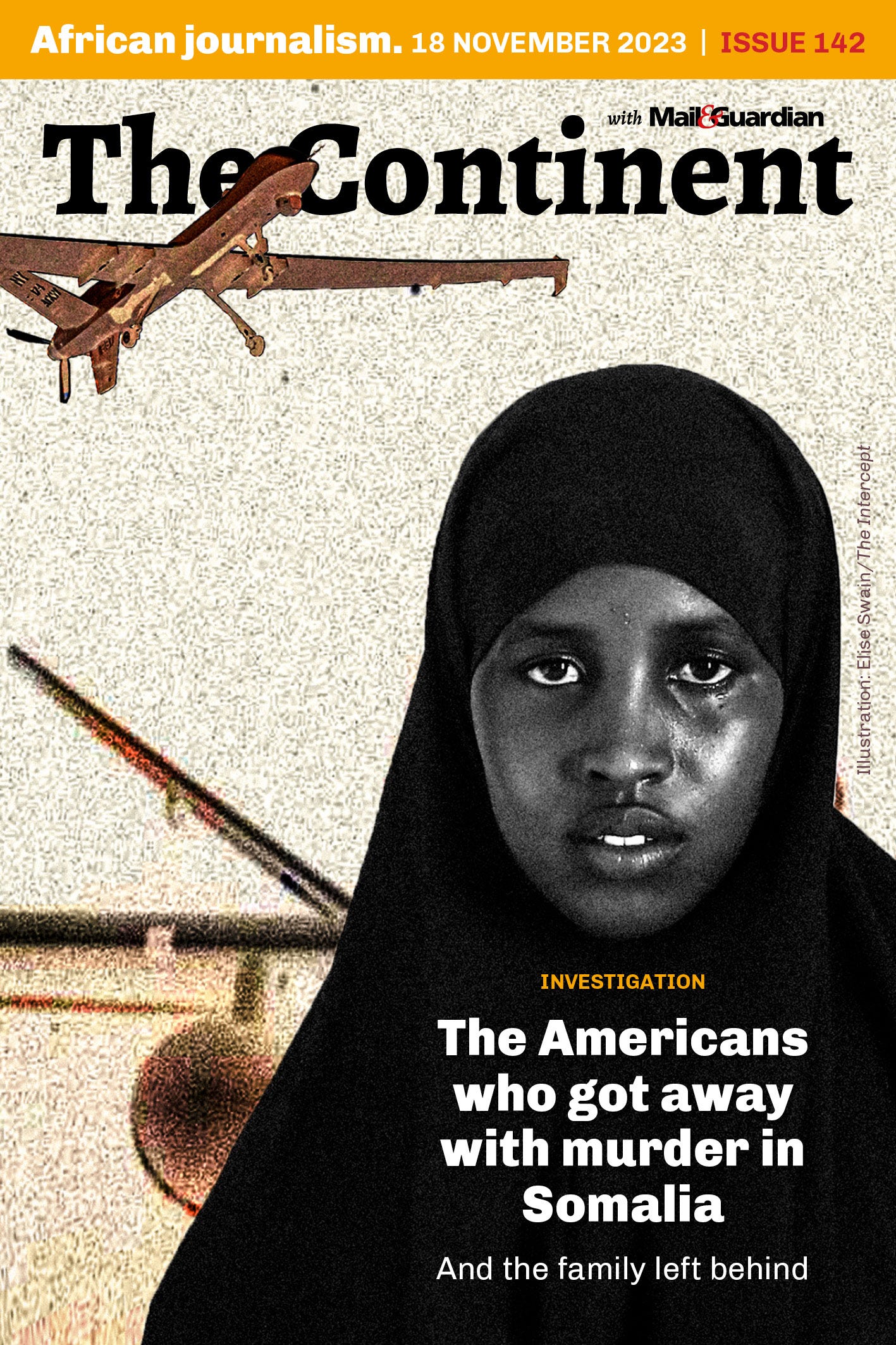'An American drone killed my sister and niece – and tore my family apart'
Despite admitting their mistake to themselves, US authorities have ignored our efforts to contact them, Abubakar Dahir Mohamed writes.
EDITOR’S NOTE: In 2018, a US drone strike killed Luul Dahir Mohamed and her four-year-old daughter. Last week, an investigation by Nick Turse that was published in The Intercept and The Continent uncovered the damning report of a secret US military investigation into the incident. The report found that the soldiers involved were confused, inexperienced and operating with faulty intelligence – but nonetheless exonerated them all. This week, Luul’s family responds
Abubakar Dahir Mohamed
My sister and her daughter were killed as they tried to escape a United States drone strike. In over five years of trying to get justice, no one has ever responded to us.
My sister Luul was funny, social, and clear-spoken. She liked people, and people liked her. Even though her daughter Mariam, my niece, was only four, it was clear to everyone that she was growing up to be just like her mother. She would get excited whenever family members would visit, running down the road to hug them.
The two of them had a special bond. When my brother found their bodies, Luul was still holding Mariam in her arms.
Luul and Mariam were killed in an American drone strike in 2018, leaving my family with just memories and shock.
Ever since, my family has been trying to get justice. Last week, the journalist Nick Turse published information about our story (which ran in both The Intercept and The Continent).
He referenced an officer from the task force that investigated the attack, who “‘determined that his unit had killed an adult female and child’, but expressed doubt that their identities would ever be known.”
For more than five years, we have tried to make sure the identities of Luul and Mariam are known to the US. At the time the officer claimed that they may never be able to identify the victims, I had already contacted Africom – the US Army’s Africa Command – through their website’s contact page, and written an email to the Public Affairs Officer at the US Embassy in Somalia.
When I found out later that the US admitted that they killed civilians in the attack, I contacted them again, telling them that the victims were my family members. I am not sure if they even read my complaint.
In June 2020, Africom added a civilian casualties reporting page to their website for the first time. I was very happy to see this. I thought there was finally a way to make a complaint that would be listened to. I submitted a description of what happened, and waited. No one got back to me. Two years later, in desperation, I submitted a complaint again. Nobody responded. I now know that the US military has admitted not only to killing Luul and Mariam, but doing so even after they survived the first strike. It killed them as
Luul fled the car they targeted – running for her life, carrying Mariam in her arms. The US has said this in its reports, and individual officers have spoken to journalists. But it has never said this to us. No one has contacted us at all.
Since the strike, our family has been broken apart. It has been more than five years since it happened, but we have not been able to move on. My father is perhaps the most affected. His eyesight has worsened to the point he can barely see.
He cries so regularly, even now, that it has caused him serious injury. He is anxious, constantly worried about the next attack.
His only solace is talking about Luul – her qualities, and the memories he has of her. His asthma has worsened. He is weak and unable to exercise control over his own body. Two of us have to be with him every day, to take him to the hospital when he needs to go, or to carry him to the bathroom.
My father has asked us, his sons, to be responsible for trying to get justice for Luul and Mariam. For more than five years, we have been trying to do this – trying to contact the US, to talk to journalists, to demand the US see us and acknowledge the harm they have caused. But in all that time, even as we have contacted them in every way we know how, we have never been able to even start a process of getting justice.
The US has never even acknowledged our existence. Having to explain this to my father, every time he asks about our progress, is humiliating.
The family I come from hates the merciless al-Shabaab. I have been working for the Somali government for 10 years. I am a person who loves to participate in rebuilding my country – who has worked towards sustainable good governance in Somalia, where we peacefully coexist, and where terrorism and the use of violence are eliminated. I played an important role in the war led by the tribal forces known as Ma’awisley – a group who has made the most significant strides in fighting al-Shabaab in decades, with the support of the Somali government and the US. If the government and the US want local people to help them defeat al-Shabaab, they shouldn’t kill those people.
The US shouldn’t commit human rights violations, and then refuse to make any amends. This also makes it easy for al-Shabaab to get people on its side. It can say, “Look. To them, we are all targets. Militants and civilians. Don’t think you are any different to us.” Al-Shabaab spin a lot of propaganda, but when they say this, they don’t have to lie. It seems that the US really believes that Somali people who live with al-Shabaab are no different to them, and giving them anything is a crime.
It is painful that my family have had to live at the mercy of al-Shabaab, who rule the territory they live in, subjecting them to constant extortion and oppression.
Now we are facing another problem from the governments we were looking to for help – both the US government, and our own. We are in the midst of all of these problems: al-Shabaab is a cruel enemy; the US is killing us and does not allow us to talk to them about the pain they have caused; and the Somali government is not prepared to protect us, its citizens, who stand and fight with it against al-Shabaab.

So, what should I do? Do I give up on seeking justice for my sister? A missile was targeted at her after she escaped the first airstrike, while running with her little girl, 50m away from the original strike.
My sister was killed, and she won’t be back again – but doesn’t she have the right to get justice, and for her family to at least be compensated for the loss of her life?
The US claims that it works to promote democracy, social justice, the rule of law, and the protection of rights around the world. As we struggle to get them to notice our suffering, we hope the US will remember what they claim to stand for.





